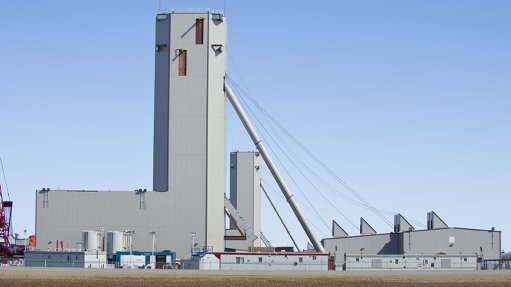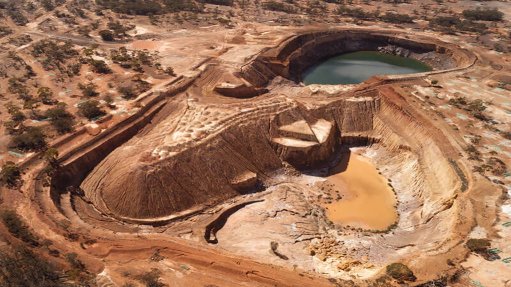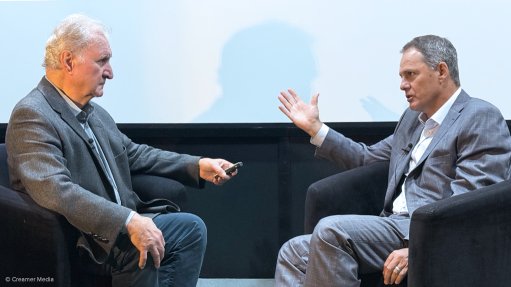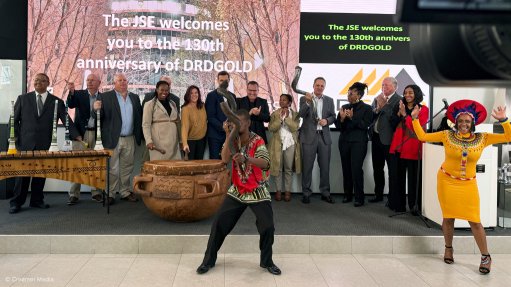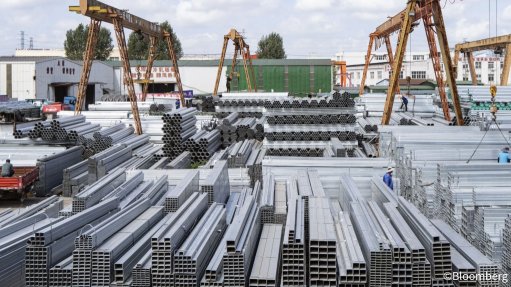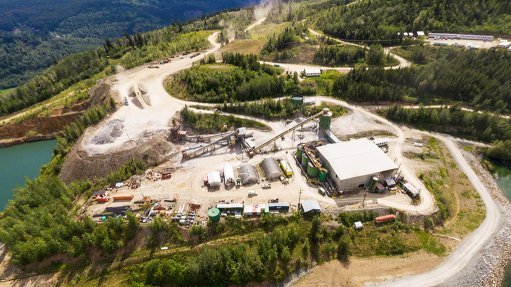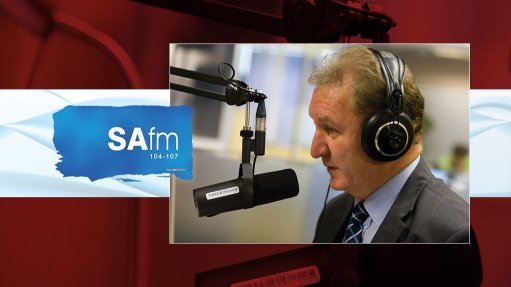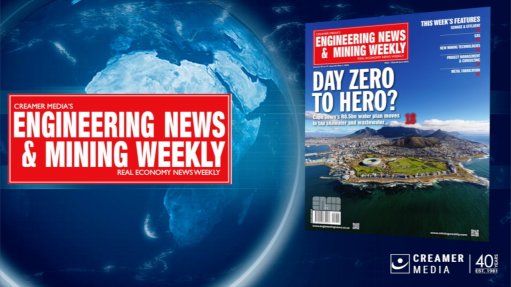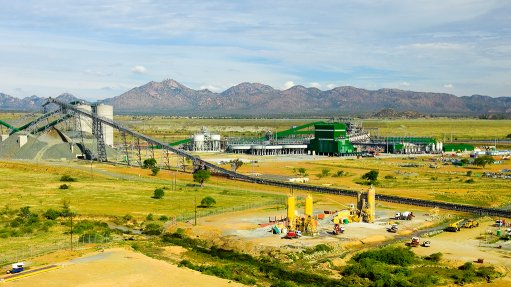Corruption concerns have increased implications for mining and exploration M&A
TORONTO (miningweekly.com) – Buyers are becoming increasingly wary of corruption issues when buying projects, operations or other companies, and those looking to sell will have to be more mindful of this, says PwC Canada MD and anticorruption expert Frederic Miller.
“Nobody these days wants to buy a problem. That’s why they hire people like me to look and ensure [that] they’re not about to step into something they don’t want to step into," he told an audience at a recent Canada-Southern Africa Chamber of Business corporate social responsibility (CSR) seminar.
KEEP IT CLEAN
As the mining and exploration sectors languished in a downturn, purchasing and mergers and acquisition (M&A) activity was dominated by spin-outs, noncore asset divestment or fire sales by those desperate for liquidity. For those lucky enough to be buying, the top concern was to ensure no corruption was associated with the M&A target.
Corrupt practices known about beforehand or unearthed during negotiations could negatively affect an asset’s future revenues and heighten the buyer’s risk of taking on liabilities associated with corruption. If they remained interested, the buyer would factor these implications into the deal’s final value, usually leading to a reduced offer.
“I’ve been involved in numerous deals in Africa where the purchase price was greatly reduced because of these very issues,” Miller pointed out.
In part, the reduction in price reflected the greater liabilities corruption and its attendant problems represented for a potential buyer. The consequences surrounding these issues have grown well beyond the jurisdiction where any illegal practices might have occurred.
Bodies such as the Royal Canadian Mounted Police (RCMP), the US Department of Justice or the UK Serious Fraud Office have become more strident in enforcing anticorruption laws, both domestic and supranational, Miller stressed. In addition, they took a dim view of excuses offered if the buyer’s anticorruption due diligence was not robust enough.
“The regulatory and enforcement expectations have been ratcheted up, so you can’t avoid doing [anticorruption due diligence] anymore,” he cautioned. “To say ‘I didn’t do it’, ‘I didn’t know about it’ or ‘I didn’t look’ is no longer a viable option. From the RCMP’s standpoint, they believe due diligence is important and that if you’re not doing it, then you’re not doing it at your peril.”
SHOW ME THE MONEY
Regional rankings on Transparency International’s (TI) Corruption Perception Index had become more influential among buyers when they considered regional corruption risks and the depths to which due diligence must be undertaken. Miller highlighted South Africa and its neighbours as examples and noted that South Africa had a TI ranking of 67 compared with Mozambique’s 119, Zimbabwe’s 156 and Angola’s 161.
The growing default position among many buyers looking to invest in higher-risk regions was to believe corruption existed somewhere within the M&A target and just needed to be unearthed. It was known that 85% to 90% of corruption incidents related to bribery, with third parties and surrogates usually proving the weakest links, Miller noted.
Because of that, third parties were closely checked, with the buyer keen to know if they also followed best practices and protocols. “[The third-party company] might have done things that you, as a Canadian company, might not be too happy about,” Miller cautioned.
However, there were still direct examples and he highlighted Hitachi’s September 28 settlement with the US Securities Exchange. Having violated the US Foreign Corrupt Practises Act, the Japan-based company agreed to pay a $19-million fine for inaccurately recording “improper payments” to South Africa’s ruling African National Congress party to win contracts that related to the construction of two coal-fired power plants.
Miller also highlighted an unnamed Canadian miner headquartered on Bay Street, the country's main financial hub, as another recent example. “[It] was raided by the RCMP and the investigation is ongoing. This company found out succinctly and forcefully that the actions of someone in Africa can affect you even when you’re sitting on Bay Street.”
The best means to assess intelligence and root out possible problems was to have people on the ground conducting investigations, Miller recommended. This work was often complex and nuanced. “The most difficult question we get asked is: ‘how far do we have to go?’ Well the answer is: far enough to satisfy the regulators or enforcers."
TRIGGER WARNINGS
A buyer’s first thoughts usually related to a target’s licences and permits, and the details surrounding their award. Beyond this, buyers wanted to understand the way past business had been conducted, with whom and for how much.
A critical eye also needed casting over any pre-existing CSR programmes, the personnel involved and any related money flows. Questions had to be asked about any relationships with political parties and whether donations had been made either directly or through surrogates. Per diems and who claimed them also needed assessing.
The risk of corruption was higher in more cash-dependent economies. In these regions, companies needed to ask who had access to money on the ground and look for possible cash leakage, monies unaccounted for and off-the-book accounts.
It was also important to examine any anticorruption compliance programmes. “The target [for acquisition] may or may not have an anticorruption compliance programme, although there’s an expectation that they probably should,” Miller added. “It’s certainly something you’ll have to consider in terms of due diligence.”
Possible motivating factors that could have led to corrupt practises should be seen as warning signs. In some jurisdictions corrupt practises were seen as part of getting business done, while on other occasions the distance between project or operation site and headquarters was a factor.
“People [on the ground] sometimes said they didn’t care about what happened in Canada. They cared about whether they’d still have a job tomorrow and if their immediate boss would fire them if they didn’t do what he or she said,” Miller highlighted.
“So, if you are going to be acquired, or you’re looking at an acquisition, you’d better look at all of these specific things. The need for you to drill down and secure good answers is really important.”
Comments
Press Office
Announcements
What's On
Subscribe to improve your user experience...
Option 1 (equivalent of R125 a month):
Receive a weekly copy of Creamer Media's Engineering News & Mining Weekly magazine
(print copy for those in South Africa and e-magazine for those outside of South Africa)
Receive daily email newsletters
Access to full search results
Access archive of magazine back copies
Access to Projects in Progress
Access to ONE Research Report of your choice in PDF format
Option 2 (equivalent of R375 a month):
All benefits from Option 1
PLUS
Access to Creamer Media's Research Channel Africa for ALL Research Reports, in PDF format, on various industrial and mining sectors
including Electricity; Water; Energy Transition; Hydrogen; Roads, Rail and Ports; Coal; Gold; Platinum; Battery Metals; etc.
Already a subscriber?
Forgotten your password?
Receive weekly copy of Creamer Media's Engineering News & Mining Weekly magazine (print copy for those in South Africa and e-magazine for those outside of South Africa)
➕
Recieve daily email newsletters
➕
Access to full search results
➕
Access archive of magazine back copies
➕
Access to Projects in Progress
➕
Access to ONE Research Report of your choice in PDF format
RESEARCH CHANNEL AFRICA
R4500 (equivalent of R375 a month)
SUBSCRIBEAll benefits from Option 1
➕
Access to Creamer Media's Research Channel Africa for ALL Research Reports on various industrial and mining sectors, in PDF format, including on:
Electricity
➕
Water
➕
Energy Transition
➕
Hydrogen
➕
Roads, Rail and Ports
➕
Coal
➕
Gold
➕
Platinum
➕
Battery Metals
➕
etc.
Receive all benefits from Option 1 or Option 2 delivered to numerous people at your company
➕
Multiple User names and Passwords for simultaneous log-ins
➕
Intranet integration access to all in your organisation





